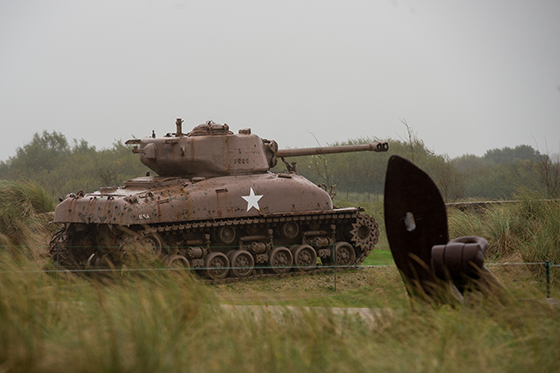To be unready for war is to invite one.
Listen To You Tell Me Texas Friday 2/28/14
Download
In January 1939, the United States had an army of just 185,000 poorly trained, poorly equipped men. World War I – the war that was to end all wars – was so horrific and so costly that the U.S. and Britain convinced themselves that the world had learned its lesson.
A war-weary democratic west made itself believe that nations could work out their differences through diplomacy and negotiation, that wars profited no one, that World War I had made that fact abundantly clear and, accordingly, that wars were a thing of the past.
The delusion of a chastened world didn’t last long. By January 1942, the U.S. was called to lead the free world in the most cataclysmic military conflict in all of history. By 1944, 12.5 million young American men – 68 times the number in 1939 – were serving in uniform.
Upwards of 70 million people died during World War II, each one a reminder that the best way to find oneself in a war is to be unprepared for one.
This bit of history in light of Defense Secretary Chuck Hagel’s recently announced Defense Department budget proposal for the next fiscal year. In a nutshell, Hagel proposes to cut the army to the smallest number since before World War II.
Of course, the proposal comes with all of the requisite assertions about the force being smarter, more nimble and better suited to the threats of the 21st century. It includes the assurances that the need for a military force capable of prosecuting two major engagements simultaneously is anachronistic and no longer realistically needed.
But that may be a simple case of shaping facts to support a pre-determined outcome.
I doubt that anyone sat down and did a dispassionate analysis of the military’s current force status and said, “We really don’t need all of these personnel, all of these ships, all of these weapons and all of these installations.”
What happened is that the Treasury Secretary said, “In the next fiscal year, this is what we’re going to take in and this is about all we can reasonably borrow and those two numbers added together are what we’re going to have to live with.” That amount being insufficient to fund entitlements, the debt, the ongoing operations of the existing federal bureaucracy and the military at its current levels, it’s the military that gets cut.
Five years in to the Obama administration, we know without doubt that he believes that there is practically nothing unworthy of government spending. The president has never proposed shrinking any part of the federal government.
Except the clearly constitutional function of defending the peace.
I have no doubt that the Pentagon wastes money. I have no doubt that the military leadership in many cases clings to systems and personnel structures that are out of date and unnecessary.
But in a world that is becoming more chaotic and dangerous, shrinking the American military to pre-World War II levels doesn’t feel right to me.
What about you?









War has gone on since time began. I don’t think there will ever be a war to end all wars except to destroy the whole planet and every soul on this earth! We have come to the point that we COULD do just that with just a push of a button! One thing is for sure though, as history has PROVED time and time again, that if you are NOT prepared, the victories will be with the ones who are! Seems liberals just can not get this concept! A strong military is a MUST if we are going to survive…period!!!
There has been a succession of stories, press interviews, congressional hearings about the defense budget. Surely this is all good news? To have all of these discussions about cuts to the defense budget must mean the world is a safer place and that we do not need the current force structure, capabilities and modern equipment? The war against violent extremism is over, there are no threats to U.S. citizens, and victory has been declared.
Since the end of World War II improvements have occurred in the combat effectiveness of America’s Army by exploiting advanced technologies, doctrinal innovation, and organizational adaptations. After a majority of its major wars including the Cold War, the U.S. Army has decreased its force structure and capabilities to conform to the desires of the American people and government policies.
In anticipation of modest defense budget growth, the goal should be to sustain the military’s size and strength over the long term by reinvesting savings in force structure and key combat capabilities. If history has shown us anything, it is that the future is always unpredictable and that the basic ingredient of success will continue to be a mind-set that allows the greatest speed and flexibility in adapting to new technologies, missions and constraints. Some of the answers to our future still remain, but the impact of not having a balanced military force structure now hits all of us squarely between the eyes. It is here and now and the issues of cost effectiveness, service capabilities and emerging concepts that need to be addressed.
War comes in many varieties, from conventional combat to irregular warfare. This used to be called the spectrum of conflict. Over the years, various future threat analyses have not done well predicting where the next conflict or intervention will occur; nor have they done well predicting the type of warfare that will have to be fought.
In today’s strategic environment, ambiguity and unpredictability reign. America’s soldiers must be as ready to fight a conventional war as it is ready to fight an irregular one. An accurate assessment of the global threats to our national interests is the prime consideration for determining the roles and missions of America’s military.
For this reason, an independent Commission on Roles and Missions should be appointed by Congress; to answer the question how can the country achieve leaner and more cost-effective armed forces and still “… provide for the common defense”? The military services are no strangers to the roles and missions debate; because the services know what the American people expect, they have consistently provided ready, relevant, and capable forces “… to perform such duties as the President may direct.”
To quote an old phrase, “Peace through strength.” It has famously been used by many leaders from Roman Emperor Hadrian in the first century AD, to Ronald Reagan in the 1980s
I remember President Bush proposed stream-lining the military, skipping a generation of weapons and shifting funds from weapons development programs that would be practically obsolete when completed to ones which would give us speed, flexibility, potency and survivability on the battlefields of the future. The Democrats howled like they’d been personally sandpapered and dipped in alcohol. The perfume princes (the guys already planning their post-service consulting careers) in the Pentagon hated it, but it would have given us a lean, affordable and extremely scary military a decade later. Of course, 9/11 intervened and prosecuting a war and squeezing the money for it out of the Democrats prevented his going ahead with his plans for upgrading the post-Clinton military, but it would have worked I think.
But the Democrats hate the military, except when they can use it to throw an international temper tantrum, raise taxes and get soldiers killed to no purpose (see Black Hawk Down and Vietnam). Unless we change the complexion of the Congress and presidency, we’re going to be in the same place the world was in 1939. The current Russian incursion into Crimea and the limp-wristed response by this administration reminds me of the Sudetenland and Neville Chamberlains sellout to Hitler for an illusory “peace in our time”.
Politicians who truly believe they are smarter than everyone else and can, through manipulation and charm can twist others to their will are every bit as dangerous and deluded as the dictators, tyrants and madmen who find them weak and stupid.
Just sayin’
Tom King